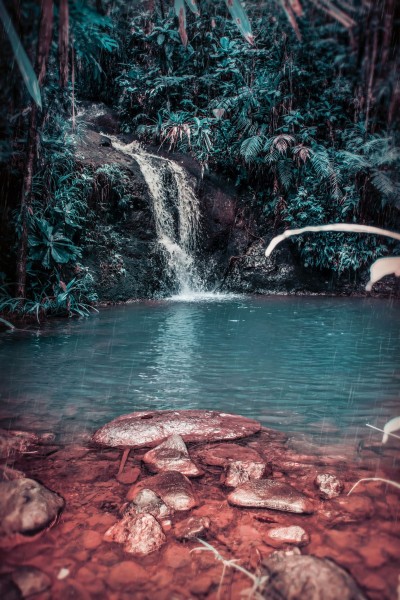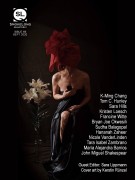Telling fortunes usually takes fifteen minutes, longer if a ghost turns up, and all night if there’s more than one.
Mama reminds me and Charlie to stay in our room, but we already know the drill; if we keep our mouths shut and the door locked, the ghosts won’t find us.
I wait for Mama’s heel clops to fade down the hallway before I switch on the flashlight. Charlie climbs into my lap, and I open the worn red atlas, borrowed from the school library. We close our eyes, open the book, and point.
We go to Marrakesh and walk the marketplace. Haggle over prices, buy camels and rainbow-colored pots. We go to a fountain in Rome, an empty highway in Mexico, an alleyway in Brazil.
We pretend Mama’s laughter is a dance party and the steady squeak through the vent is rats.
Charlie’s stomach grumbles, and I rub his belly round and round.
“There will be milk and cereal in the morning,” I whisper. “If there are enough ghosts, maybe sugar cereal all week.”
We flip the page to a little house in the tundra.
“We could have a goat and milk it every morning,” Charlie says.
“The wind is so cold we’d have to wear thick wool hats and at least three sweaters.”
“Could Mama tell fortunes there?”
“No,” I say. “There wouldn’t be any customers for miles. But we’d learn to saw holes in the ice and sing until fish jump out of the water onto our plates.”
“What kind of fish?” Charlie asks.
“Silver salmon as big as your leg.”
I want to believe in this story. I want to shut out the moans that storm through the vent. The ghosts of men that sometimes take the money in Mama’s bedside table and leave bruises across her arms and cheeks.
An angry ghost can keep us out of school all week.
We turn the page and we’re in Africa with soldiers carrying guns. They aren’t any older than the boys at school. Boys who whisper about saving up for the kind of fortunes Mama tells. Boys who laugh and ask if I read fortunes too.
Charlie traces his finger across the page. “Is there a war?”
“There’s always a war somewhere,” I say.
He turns to the Amazon and we row along the wide brown river. Pretend the squawking noises are scarlet macaws, that the pounding comes from our own hearts as we race downriver past the hungry cayman, pull at the oars, passing vampire fish and piranha, pull past eel and anaconda, pull and race and pound.
“We’re not scared,” I tell Charlie. “Not of the water snakes or biting fish.”
“Or the lions,” Charlie says.
There are no lions in the Amazon, but I know what he means as the sound slows through the vent, how it always feels as if there’s something lurking in the shadows. Something wild and dangerous.
The vent goes quiet, and Charlie whispers, “Do you think there are cannibals?”
“Where’d you hear that word?”
Charlie shrugs, so I turn to the pages with islands—faraway places with names like Polynesia and Madagascar. He searches for evidence, but I don’t need a picture to imagine it.
I see humans eating humans. Licking the remains off a femur and drinking water from a foam white skull.



 The SmokeLong Grand Micro Contest (The Mikey) is now an annual competition celebrating and compensating the best micro fiction and nonfiction online.
The SmokeLong Grand Micro Contest (The Mikey) is now an annual competition celebrating and compensating the best micro fiction and nonfiction online.